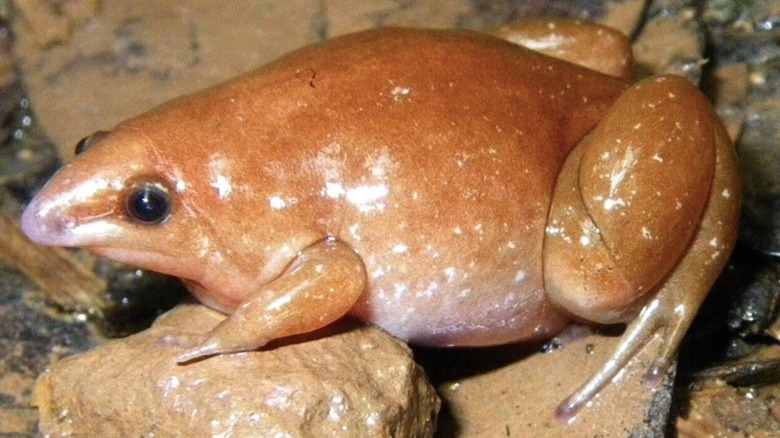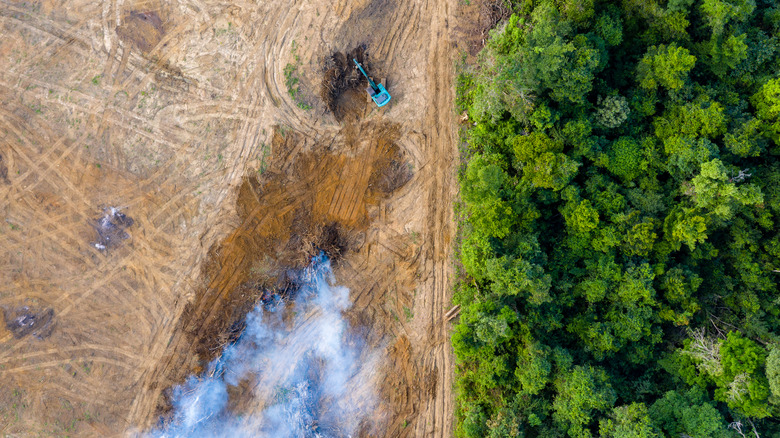What You Didn't Know About The Newly Discovered Zombie Frog
German researchers have discovered a new frog in the Amazon rainforest, and they've named it the "zombie frog." The interesting moniker causes one's imagination to run wild. What in the world could earn an Amazonian frog such a name? A poison secreted from their skin that turns any unfortunate predator into a brainless walking corpse? The ability to hop back from the dead? Man-eating polliwogs!?
Well, according to Smithsonian Magazine, it's none of the above. The little pointy-nosed members of the genus Synapturanus are known as fossorial frogs, which means they burrow into the ground. German herpetologist Raffael Ernst heard one making its unique call in the mud beneath his feet one rainy day in Guyana, South America. He immediately dropped to his knees and dug his hands into the wet earth. When he finally made his discovery, he was covered in the mud of the Amazon. The zombie frog is thus a species named not for its own characteristics, but for those of the biologists who discovered it. "Actually, we chose this name because the researchers are the ones that look like zombies when they dig out the frogs from the ground," Ernst said. While the discovery of a new species is always thrilling and positive news, he said that the zombie frog also highlights the serious challenges the Amazon and its wild inhabitants are currently facing.
The discovery of the zombie frog highlights biodiversity problems in the Amazon
Ernst and his team have since discovered two other species of the zombie frog's genus, and they believe there may be as many as six times more than what they have found so far in that one remote area of the rainforest. Their habits of burrowing into the ground and only emitting their calls during or after hard rains have kept them off researchers' radars until now. Still, the discovery is bittersweet for Ernst and his colleagues. "Whenever we discover new species, we always have in mind that we are losing species at the same time, probably more than we discover, and before we even have the chance to describe them," he said, according to iNews.
Despite the whole world knowing that our survival pretty much depends on the survival of places like the Amazon rainforest, the megadiverse area is shrinking rapidly by our own hands. ABC News reports that rampant deforestation and wildfires razed an area of the Amazon roughly equivalent to the size of Israel in 2020 alone. With each acre of Amazon we lose, we are losing untold amounts of endemic species of plants and animals, further reducing the world's biodiversity, on which our environment, climate, and ultimately our survival depend. At this rate, the Amazon will be one of several parts of our world that will be gone in 100 years.

